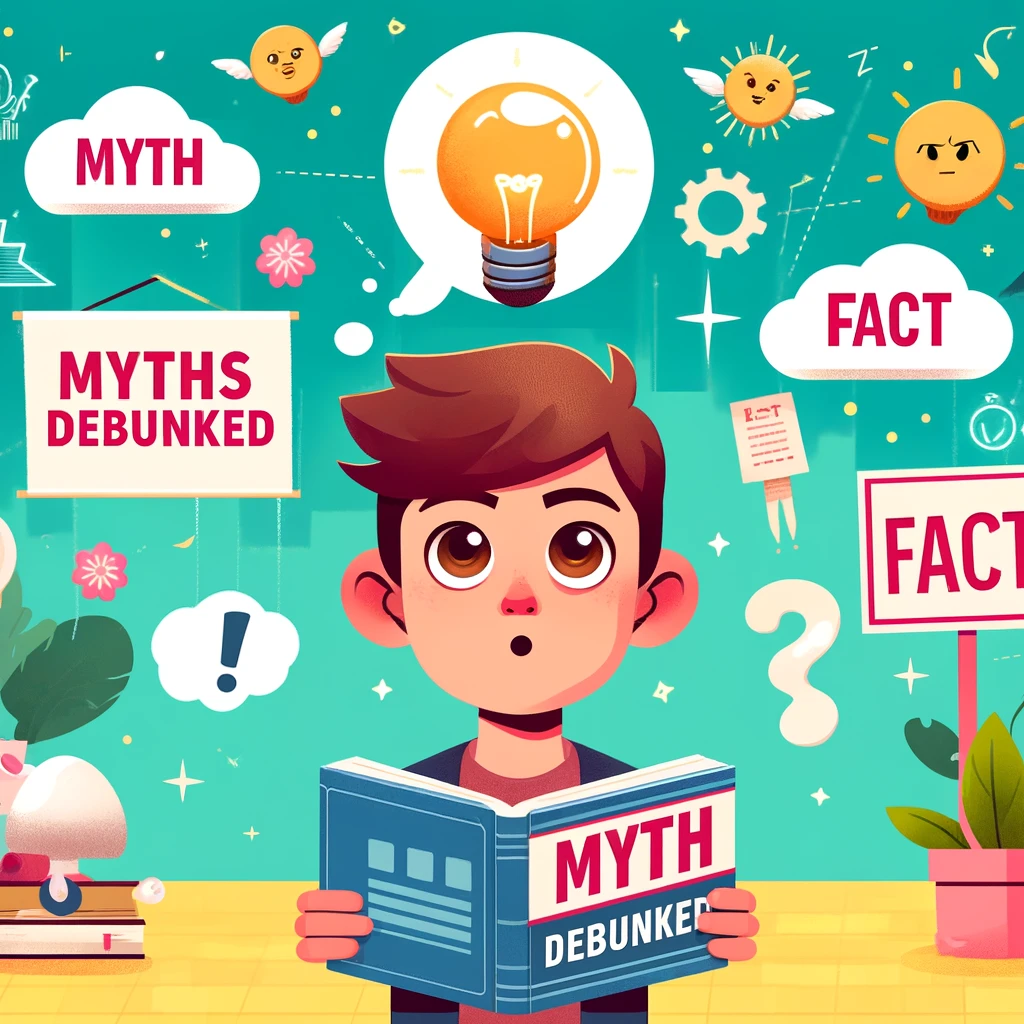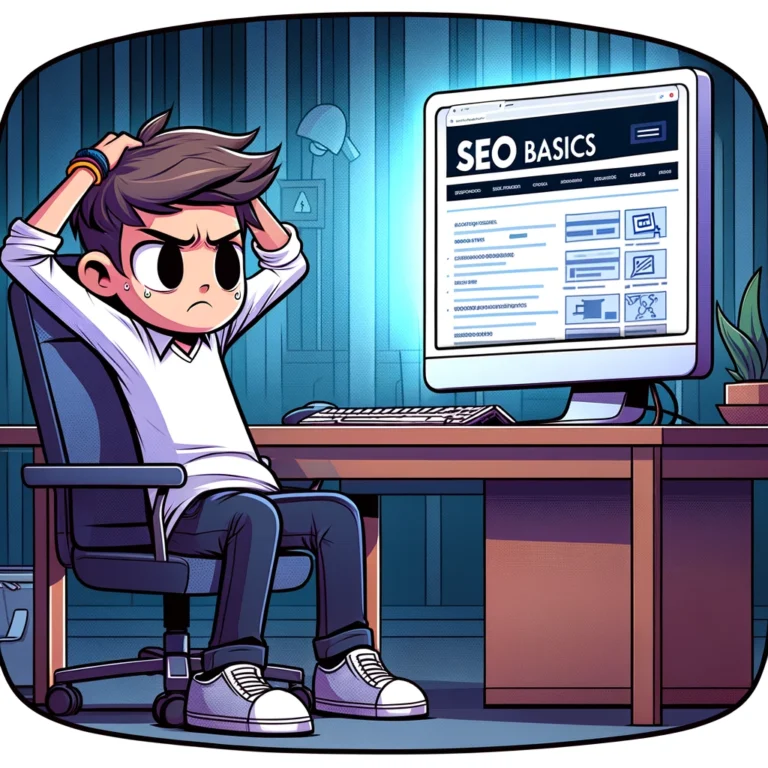Search engine optimization (SEO) is a crucial part of website management. If done correctly, it improves your site’s visibility and drives more organic traffic. However, the internet is rife with misconceptions about how SEO works. This article aims to debunk some of the most common SEO myths, helping you avoid common pitfalls and focus on strategies that genuinely work.
Myth 1: More Keywords Means More Traffic
One of the oldest myths in the book is the idea that stuffing your content with keywords will boost your rankings in search engine results. This used to be somewhat true in the early days of SEO, but search engines have evolved. Now, algorithms like Google’s focus on the quality and relevance of content, not just the number of times a keyword appears. Keyword stuffing can actually harm your rankings and make your content unreadable.
Myth 2: SEO is a One-Time Task
Many believe that SEO is something you can set and forget. This couldn’t be further from the truth. SEO is an ongoing process. Search engines frequently update their algorithms, and competitors continually refine their websites. To stay ahead, you need to consistently optimize your site, update content, and adjust your strategies based on performance metrics.
Myth 3: Links Are All That Matter
While backlinks from other websites are crucial for SEO, they aren’t the only factor that affects your ranking. Quality content, user experience, site speed, and technical SEO are equally important. Focusing solely on building links can lead to neglecting other critical aspects of SEO, such as content quality and site architecture, which can detrimentally affect your overall SEO performance.
Myth 4: Social Media Doesn’t Affect SEO
The direct impact of social media signals (likes, shares, follows) on rankings may be minimal, but the indirect benefits are undeniable. Content popular on social media gains more exposure, which can lead to more links and mentions on other websites—factors that do influence rankings. Additionally, social media profiles often rank in search results for brand names, enhancing your overall online presence.
Myth 5: Images Don’t Need Optimization
Many site owners overlook the importance of optimizing images. Large, unoptimized images can slow down your site, negatively affecting user experience and SEO. Furthermore, optimized image alt texts and file names can help you rank in image searches, a significant source of traffic for many websites. Always ensure images are compressed for faster loading and properly tagged for relevance.
Myth 6: Paid Search Improves Organic Results
There is a common misconception that spending money on Google Ads or other paid search platforms can boost your organic search rankings. This is not true. Paid search results and organic results are completely independent of each other. Using paid search can increase traffic and potentially lead to more natural backlinks, but it does not directly affect your organic search rankings.
Myth 7: SEO Is All About Ranking
Many businesses obsess over ranking first for their desired keywords. While rankings are important, they’re not the only goal. More crucial is attracting the right kind of traffic that will convert into leads and customers. Sometimes, less competitive keywords can bring in more qualified traffic. SEO is more about visibility and conversions than just rankings.
Myth 8: Having a Secure Website Isn’t Necessary for SEO
Security is a significant factor in website management. Websites with HTTPS encryption are favored by search engines because they provide a secure connection. This is particularly true since Google announced that website security would be a ranking factor. Ensuring your site is secure not only protects your data and your users but also helps your SEO.
Myth 9: The More Pages, the Better
Some believe that simply having more pages on a site will improve SEO. However, the quality of content is much more important than quantity. Having many pages with thin, low-quality content can actually harm your SEO. Focus on creating valuable, well-written content that addresses the needs of your audience.
SEO is complex and often misunderstood, but understanding what not to believe can help you focus on what truly matters. By dispelling these common myths, you can optimize your site more effectively and build a stronger online presence. Remember, SEO is not just about following trends—it’s about understanding your audience, providing quality content, and ensuring a great user experience. Keep learning and adjusting your strategies as you gather more insights into what works best for your site.

Detailed Guide to Modern SEO Techniques
Myth 10: Duplicate Content Leads to Penalties
It’s widely believed that duplicate content on your website can result in penalties from search engines. While it’s true that search engines prefer unique content, they do not penalize sites for having duplicate content. Instead, they may choose to show one version of the content in search results and ignore the others. However, it’s still best to avoid substantial duplicate content because it can dilute your SEO efforts by splitting signals across multiple pages.
Myth 11: Higher Word Count is Always Better
The misconception that longer content always ranks better can lead marketers to inflate their articles unnecessarily. While detailed posts can rank well because they often provide comprehensive information on a topic, word count alone isn’t a deciding factor. What matters most is the quality of the information and how well it serves the user’s intent. Sometimes, a concise, well-written piece is much more effective than a long, rambling one.
Myth 12: You Can Achieve Fast SEO Results
SEO is not a sprint; it’s a marathon. Some believe that they can see significant SEO results in a few days or weeks. The truth is, SEO takes time to affect search rankings. It involves building trust with search engines, which doesn’t happen overnight. Patience is crucial, and consistent effort pays off over time. Immediate results may be seen from technical fixes like resolving crawl issues, but most SEO strategies take longer to manifest.
Myth 13: You Must Submit Your Site to Google
In the past, it was necessary to submit new websites to search engines to be indexed. Today, this is no longer the case. Search engines like Google are extremely proficient at discovering new content on their own, provided that your site is properly linked to from other pages on the web. While you can still manually submit pages to Google via Google Search Console, it isn’t necessary for your site to be found and indexed.
Myth 14: Meta Tags Don’t Matter Anymore
Some argue that meta tags are no longer relevant. However, while it’s true that some meta tags like the keywords tag are no longer considered by Google for ranking purposes, others play a crucial role. Title tags and meta descriptions, for example, influence click-through rates from the search engine results pages (SERPs). Crafting compelling meta descriptions and relevant, keyword-rich title tags is still a best practice for SEO.
Myth 15: Local SEO is Only for Small Businesses
Many believe that local SEO is only beneficial for small businesses or those with a physical location. However, even large enterprises can benefit from local SEO strategies if they operate in specific geographical areas. Local SEO helps you appear in local search results and can significantly increase foot traffic and local awareness of your business.
Myth 16: More Traffic Equals Higher Rankings
While it’s beneficial to have a lot of traffic, more traffic doesn’t automatically lead to higher rankings. Search engines rank pages based on numerous factors, including relevance to the search query, site authority, and user engagement, not just the number of visitors. It’s possible for a site with less traffic to rank higher than one with more traffic if it’s more relevant and offers a better user experience.
Conclusion
SEO is full of myths and misconceptions that can lead well-intentioned marketers astray. By understanding what these myths are and why they are wrong, you can focus on SEO strategies that actually work. Keep up-to-date with SEO trends and continue testing and learning. Remember, effective SEO strategy is about understanding your audience and delivering a website experience optimized for both users and search engines.



